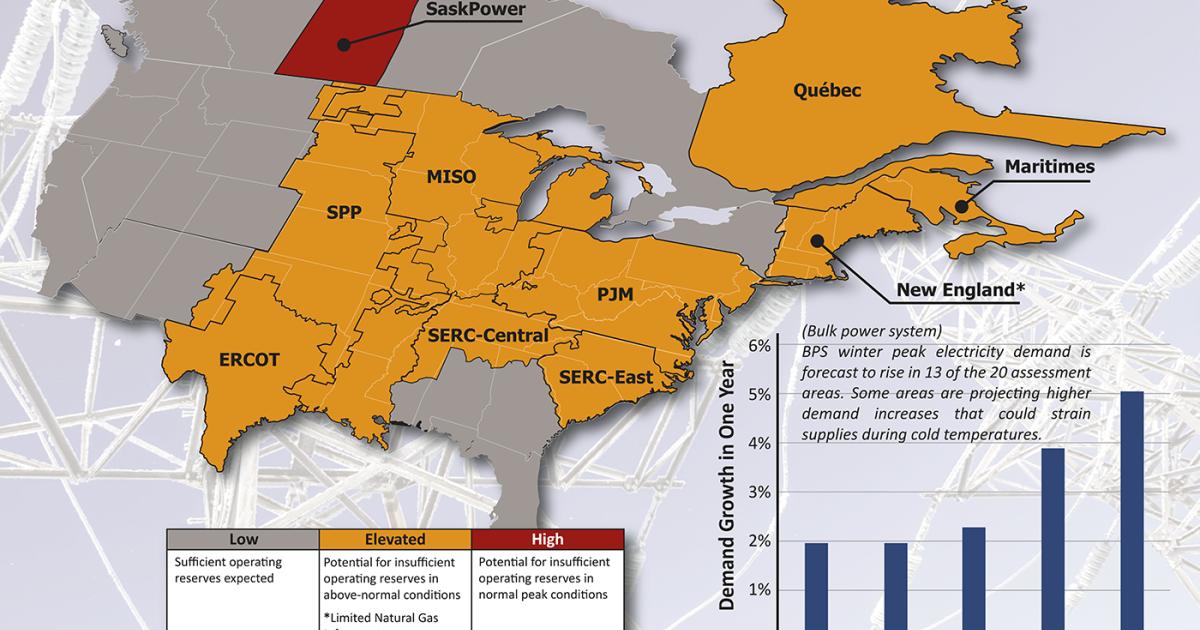North Dakota is included in the elevated risk area for energy emergencies this winter, as described in NERC’s 2023-24 Winter Reliability Assessment issued in November.
Much of North America is at elevated risk of insufficient energy supplies this winter, the North American Electric Reliability Corporation (NERC) reports in its 2023-24 Winter Reliability Assessment issued in November. Prolonged, wide-area cold snaps during peak weather conditions threaten the reliable performance of the bulk power system and the availability of fuel supplies for natural-gas-fired generation, the report states.
“This forecast again shows our nation faces looming grid reliability challenges, while demand for electricity continues to soar,” says Jim Matheson, National Rural Electric Cooperative Association (NRECA) CEO. “That’s unacceptable and should be cause for concern for all Americans.”
Both regional transmission organizations with footprints in North Dakota, Southwest Power Pool (SPP) and Midcontinent Independent System Operator (MISO), are listed as elevated risk areas in the NERC report. During above-normal peak winter conditions, potential energy capacity shortfalls could reach 8,500 megawatts (MW) in SPP and 16,000 MW in MISO.
Higher demand – or underestimating demand – for electricity this winter could further strain resources, especially in a reduced generation capacity scenario, like with Winter Storm Uri in February 2021 and Winter Storm Elliot in December 2022.
“To avoid catastrophe, policymakers must recognize their role in threatening the reliability of the grid and take steps to help prevent rolling blackouts before it’s too late,” Matheson says.
NERC has warned electric reliability is in jeopardy and the risk of rolling blackouts is rising. And, the “disorderly” retirement of existing generating assets is directly impacting reliability. Generation assets taken offline in recent years have been replaced with sources providing less capacity, no capacity or intermittent capacity not available 24/7.
NERC recently listed energy policy as a newfound reliability risk.
“Policies like the Environmental Protection Agency’s (EPA) recent power plant proposal will magnify today’s reliability challenges with grave consequences for an already stressed grid,” Matheson says. The proposed rule seeks to eliminate power plant emissions of carbon dioxide by 2035.
“The importance of keeping the lights on transcends party lines. Reliable electricity is an issue that impacts all Americans – and is one lawmakers in both parties must work seriously to address,” he says.










